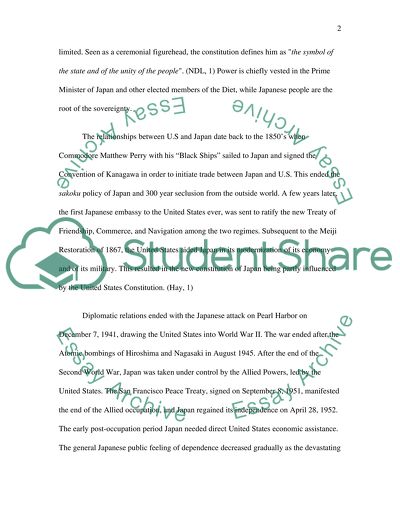Cite this document
(“Japan U.S. relation Essay Example | Topics and Well Written Essays - 1500 words”, n.d.)
Retrieved from https://studentshare.org/miscellaneous/1506094-japan-us-relation
Retrieved from https://studentshare.org/miscellaneous/1506094-japan-us-relation
(Japan U.S. Relation Essay Example | Topics and Well Written Essays - 1500 Words)
https://studentshare.org/miscellaneous/1506094-japan-us-relation.
https://studentshare.org/miscellaneous/1506094-japan-us-relation.
“Japan U.S. Relation Essay Example | Topics and Well Written Essays - 1500 Words”, n.d. https://studentshare.org/miscellaneous/1506094-japan-us-relation.


